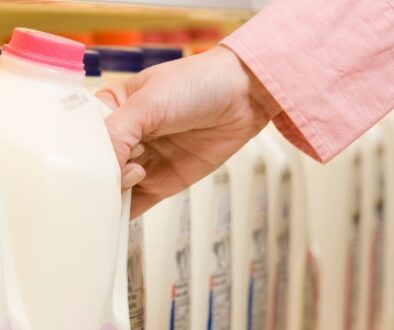Why COVID-19 Outbreaks are Unlikely in Dairy Plants
Meatpacking plants are in the spotlight across the country for becoming COVID-19 hotspots. Throughout America nearly a dozen meatpacking plants have shuttered, forcing their employees out of work while facilities are deep cleaned and vast testing seeks to determine who is eligible to return to work. Why aren’t we seeing the same thing happen in dairy processing plants? There are two main reasons dairy plants are less likely to house large COVID-19 outbreaks.
Working Conditions and Facility
In meatpacking plants employees often work shoulder to shoulder whereas dairy processing is highly automated, explains Sam Alcaine, a food scientist and assistant professor at Cornell University.
“It’s simply a function of having a larger number of employees working in close contact,” he says. “You may have seen photos of the plastic dividers some meat plants have installed, but even they only do so much [to prevent the spread].”
Andy Novakovic, a dairy economist at Cornell University, agrees that the fundamental differences between how dairy and meat plants are operated is the biggest factor at play here.
“You can walk into a large commercial facility like a block cheese or milk powder plant and aside from the guard at the door, you’d have trouble finding someone,” he says.
At what some call conversion plants, where large blocks of cheese are processed and repackaged into retail sized portions, there are more employees working together, but the numbers are nothing compared to an average meat plant.
Meat and dairy facilities are inspected by USDA and FDA respectively. Novakovic says dairy plants take food safety and cleanliness to a very high level because of the nature of the product they process.
“In my experience dairy plant employees have a high commitment to cleanliness and food safety already,” he says. “They’ve been changing onsite, washing their hands and disinfecting their boots at every turn for years before this started.”
Check out this production update from a Dairy Manufacturer located in Westby, Wisconsin.
Novakovic says that previously established cultural commitment to strict protocols enabled plant managers to implement COVID-19 specific protocols faster and also ensured employees followed the guidelines more quickly.
Community Culture
Novakovic and Alcaine agree the community culture among the employees is another huge factor at play. Working in a dairy processing plant requires a different level of education and ability to use technology, which is often directly correlated with socioeconomic status.
“What are the [workforce’s] economic conditions and what do they mean for community spread of the virus outside the plant? Are they primarily carpooling together or taking public transportation because they have limited transportation? That’s one case where you have several people in a confined space going into work that increases the chances of person to person transmission,” Alcaine noted that housing situations may also play a role. “If there are many people in one house, or multiple families together, that can impact how quickly the virus can spread.”
Alcaine says the economic conditions which impact things like housing and transportation can influence people feeling like they need to work even if they’re sick.
“All companies are saying if you’re sick stay home,” he says. “I know that there have been instances of employees still feeling that they need to come in, fearing that if they don’t show up they’re at risk of losing their jobs, even though they are being told differently. So that kind of pressure may play into the situation.”
Additionally, geographic location plays a role, Novakavich says. “If you’re in rural New York, just a long car ride from New York City it’s probably easier to take this situation seriously than if you’re in the middle of Nebraska somewhere.”
Dairy Plants are Not Immuned
Still, dairy plants are not immune to the challenges presented by COVID-19. Alcaine says plants must remain vigilant about monitoring interaction in break rooms and other areas where a large number of employees congregate, ensuring that there is appropriate social distancing, regular handwashing with soap, and potential use of face coverings, are all important to preventing spread in the plant.
Source: AgWeb.com




